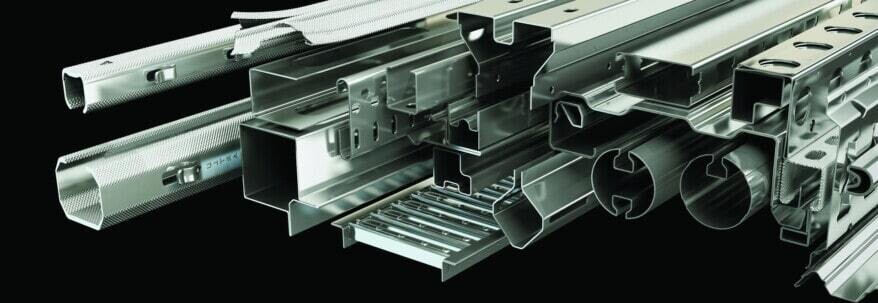IS ROLL FORMING ENERGY-SAVING?
As a global leader in roll forming, we are firmly focused on reducing our ecological footprint. In this article, you’ll learn why cold forming using roll forming is climate-friendly and how steel can be recycled in an endless loop, ensuring a greater ecological balance when compared to aluminium and other materials. At Hadley, all of our branches are committed to an innovative and sustainable working environment. Read on to find out more about the results.
The past few years have been rich in innovative developments relating to roll forming and the use of materials, driven by the economic and ecological challenges in the market. Roll forming of steel has come to be viewed in a new light, as the roll forming process is an energy-efficient process, helping to reduce emissions of CO2.
ENERGY-SAVING AND CLIMATE-FRIENDLY
Cold forming of metal using roll forming can be considered climate-friendly. The process is carried out at room temperature as the coil material does not need to be heated up. The only energy needed is that for transport and acceleration processes. The low rolling friction losses, brought about due to small friction surfaces, have a positive impact, contributing to an extremely high energy return.
Roll-formed steel profiles are an extremely economical and ecological alternative for materials such as extruded aluminium profiles, PET, or composites such as polyurethane.

RECYCLING HELPS TO IMPROVE THE ECOLOGICAL BALANCE
Steel is by far the most recycled material. It maintains its qualitative properties after recycling, which means that it can be remelted an infinite number of times. Steel scrap is recycled the world over by a well-established scrap and recycling industry. Were you aware that the more frequently steel is recycled, the smaller its ecological footprint becomes?
This is because the CO2 emitted during the production of one tonne of steel is 50 per cent lower in the case of multi-recycling than in the case of primary production. If we compare the lifecycle of different raw materials, the emissions for aluminium are around four times the quantity of CO2, and in the case of carbon fibre-reinforced plastic (CFRP), as many as five or size times the quantity of CO2, when compared to steel.
The roll forming process not only satisfies the requirements for a low-energy and environmentally-responsible production process, but is also value engineered to be cost effective. Steel offers outstanding ecological balance, far exceeding that of aluminium, plastics, and composite materials.
If you consider reducing your ecological footprint important and are interested in what we know and what we can do to help improve product efficiency and reduce the weight and use of raw materials, please get in touch for a no-obligation discussion. The engineers at Hadley Group Technology would be happy to engage in some collaborative thinking with you.
